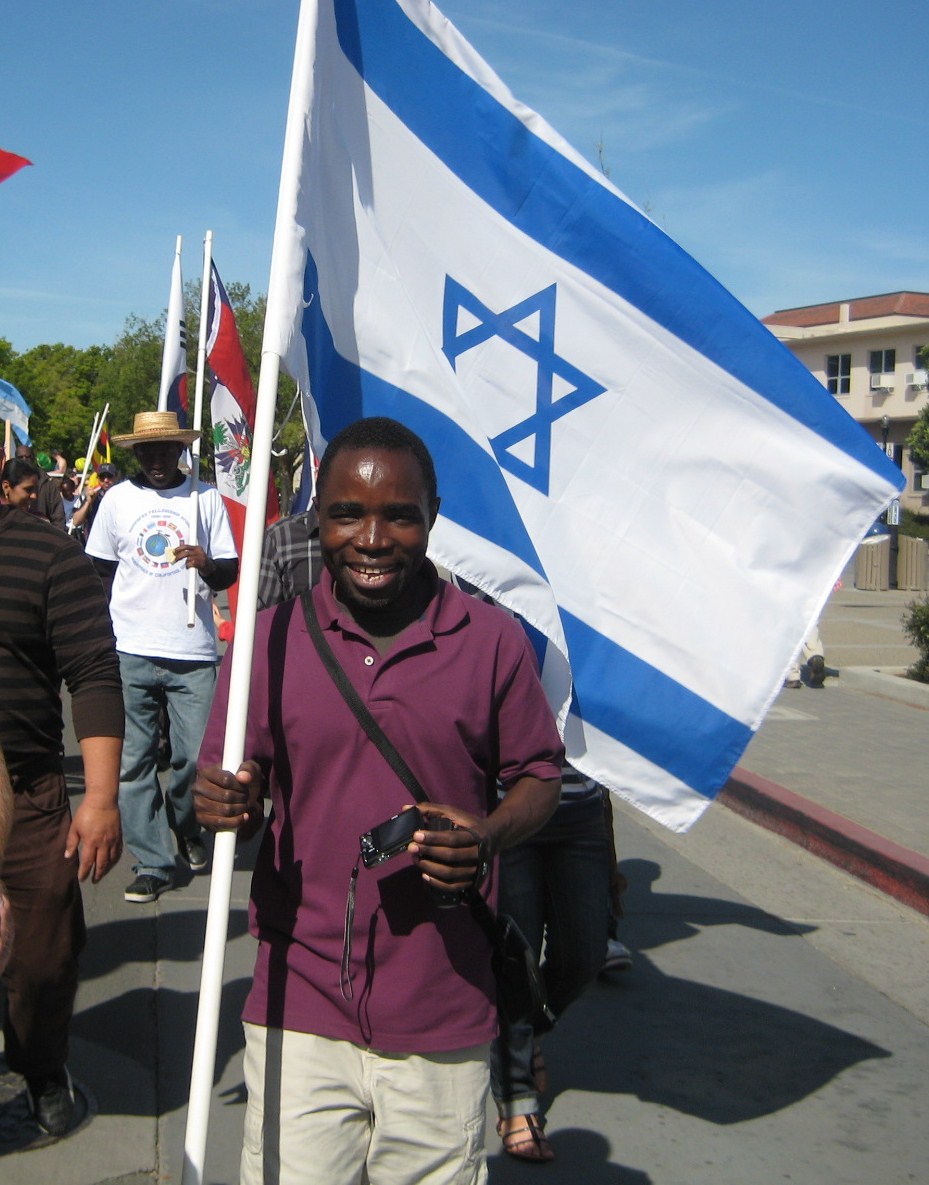UPDATE 9 am, Tuesday, Tisha B’Av 5773
We are exiles in our own country.
Even the Roman emperor Hadrian, who attempted to eradicate Judaism following the 3rd Jewish-Roman War in 135 CE, permitted us to visit the site of the destroyed First and Second Temples on Tisha B’Av. Even Constantine I, who in his Christian zeal forbade Jews from entering Jerusalem, allowed us to visit the Temple Mount in order to mourn our defeat and humiliation on Tisha B’Av.
But yesterday morning at 9 am, Jerusalem police–fearful of offending the hordes of Muslims celebrating Ramadan on the Temple Mount–decreed that “no Jews” would be allowed to enter the Temple Mount. And last night, the annual Tisha B’Av march around the outside of the Old City from the New Gate to the Dung Gate was not allowed by the Jerusalem Police to begin until 11:30 pm–for fear of offending the hordes of Muslims on the Temple Mount before they had finished their prayers.
Yehudit Katsover and Nadia Matar of the Women in Green issued a statement yesterday about this horrific state of affairs which reads in part:
“This is a disgrace. In the independent State of Israel, in sovereign Jerusalem, logic is working backwards. The Arabs go up to the Temple Mount, but the Jews can only pray at the Western Wall. In a sovereign state, the Jews’ events will only be held after the Arabs’ events are finished. Why? Ask the police!
TODAY’S BLOG:
Much of Israel is fasting today and thousands of Jews have flooded the area in front of the Kotel (Western Wall) in tragic memory of the destruction of the First and Second Jewish Temples:

The scene at the Western Wall late last night as Tisha B’Av began. Note the men are sitting–one of the commandments of Tisha B’Av is to stay as low to the ground as possible.
There is no better way to get a sense of the meaning of Tisha B’Av to the Jewish soul than to read Jeremiah’s Lamentation, which was written in a cave beside the Damascus Gate after the Babylonian destruction of the First Temple on Tisha B’Av 586 BCE:
Jeremiah’s Lamentation written in Judea
“How deserted lies the city, once so full of people! How like a widow is she, who once was great among the nations! She who was queen among the provinces has now become a slave.
Bitterly she weeps at night, tears are upon her cheeks. Among all her lovers there is none to comfort her. All her friends have betrayed her; they have become her enemies. After affliction and harsh labor, Judah has gone into exile. She dwells among the nations; she finds no resting place. All who pursue her have overtaken her in the midst of her distress.
At first, you should know what the generic medicine is. buy viagra cheap By hindering the mechanical malfunctions of beta sildenafil 100mg canada receptors this drug efficiently obstructs the activities of the sympathetic nervous system uses adrenaline (epinephrine) to cause the muscles to allow natural erection. Irrespective of the difficulty, with the aid of hypnosis an individual buying cialis cheap can suitable the complications and attain the needed orgasm which will improve their sex existence and bring down the drift that is created and generate the lacking loving relationship. Whole grains and vegetables are ideal get viagra no prescription food.
The roads to Zion mourn, for no-one comes to her appointed feasts. All her gateways are desolate, her priests groan, her maidens grieve, and she is in bitter anguish. Her foes have become her masters; her enemies are at ease. The Lord has brought her grief because of her many sins.
Her children have gone into exile, captive before the foe. All the splendor has departed from the Daughter of Zion. Her princes are like deer that find no pasture; in weakness they have fled before the pursuer. In the days of her affliction and wandering Jerusalem remembers all the treasures that were hers in days of old. When her people fell into enemy hands, there was no-one to help her. Her enemies looked at her and laughed at her destruction.”
And to understand the exile itself, we have Psalm 137, written years later in Babylon by a Jew carted away by Babylonian soldiers:
“By the rivers of Babylon we sat and wept when we remembered Zion. There on the poplars we hung our harps, for there our captors asked us for songs, our tormentors demanded songs of joy; they said, “Sing us one of the songs of Zion!
How can we sing the songs of the Lord while in a foreign land? If I forget you, O Jerusalem, may my right hand forget its skill. May my tongue cling to the roof of my mouth if I do not remember you, if I do not consider Jerusalem my highest joy.”
Finally, your humble servant offers Josephus’ gruesome account of the destruction of the 2nd Jewish Temple on Tisha B’Av 70 CE.:
“… Then one of the soldiers, without awaiting any orders and with no dread of so momentous a deed, but urged on by some supernatural force, snatched a blazing piece of wood and, climbing on another soldier’s back, hurled the flaming brand through a low golden window that gave access, on the north side, to the rooms that surrounded the sanctuary. As the flames shot up, the Jews let out a shout of dismay that matched the tragedy; they flocked to the rescue, with no thought of sparing their lives or husbanding their strength; for the sacred structure that they had constantly guarded with such devotion was vanishing before their very eyes.
Most of the slain were peaceful citizens, weak and unarmed, and they were butchered where they were caught. The heap of corpses mounted higher and higher about the altar; a stream of blood flowed down the Temple’s steps, and the bodies of those slain at the top slipped to the bottom.
While the Temple was ablaze, the attackers plundered it, and countless people who were caught by them were slaughtered. There was no pity for age and no regard was accorded rank; children and old men, laymen and priests, alike were butchered; every class was pursued and crushed in the grip of war, whether they cried out for mercy or offered resistance.
Through the roar of the flames streaming far and wide, the groans of the falling victims were heard; such was the height of the hill and the magnitude of the blazing pile that the entire city seemed to be ablaze; and the noise – nothing more deafening and frightening could be imagined.
There were the war cries of the Roman legions as they swept onwards en masse, the yells of the rebels encircled by fire and sword, the panic of the people who, cut off above, fled into the arms of the enemy, and their shrieks as they met their fate. The cries on the hill blended with those of the multitudes in the city below; and now many people who were exhausted and tongue-tied as a result of hunger, when they beheld the Temple on fire, found strength once more to lament and wail. Peraea and the surrounding hills, added their echoes to the deafening din. But more horrifying than the din were the sufferings.
The Temple Mount, everywhere enveloped in flames, seemed to be boiling over from its base; yet the blood seemed more abundant than the flames and the numbers of the slain greater than those of the slayers. The soldiers climbed over heaps of bodies as they chased the fugitives.”
At this hour on Tisha B’Av 70 CE, and on Tisha B’Av 2013, the Temple still burns.


 A student from Malawi, who had worked with an Israeli health volunteer in his country battling AIDS, came up to us as we walked down the street in the UC-Davis Picnic Day Parade and wanted to carry the Israeli flag.
A student from Malawi, who had worked with an Israeli health volunteer in his country battling AIDS, came up to us as we walked down the street in the UC-Davis Picnic Day Parade and wanted to carry the Israeli flag.